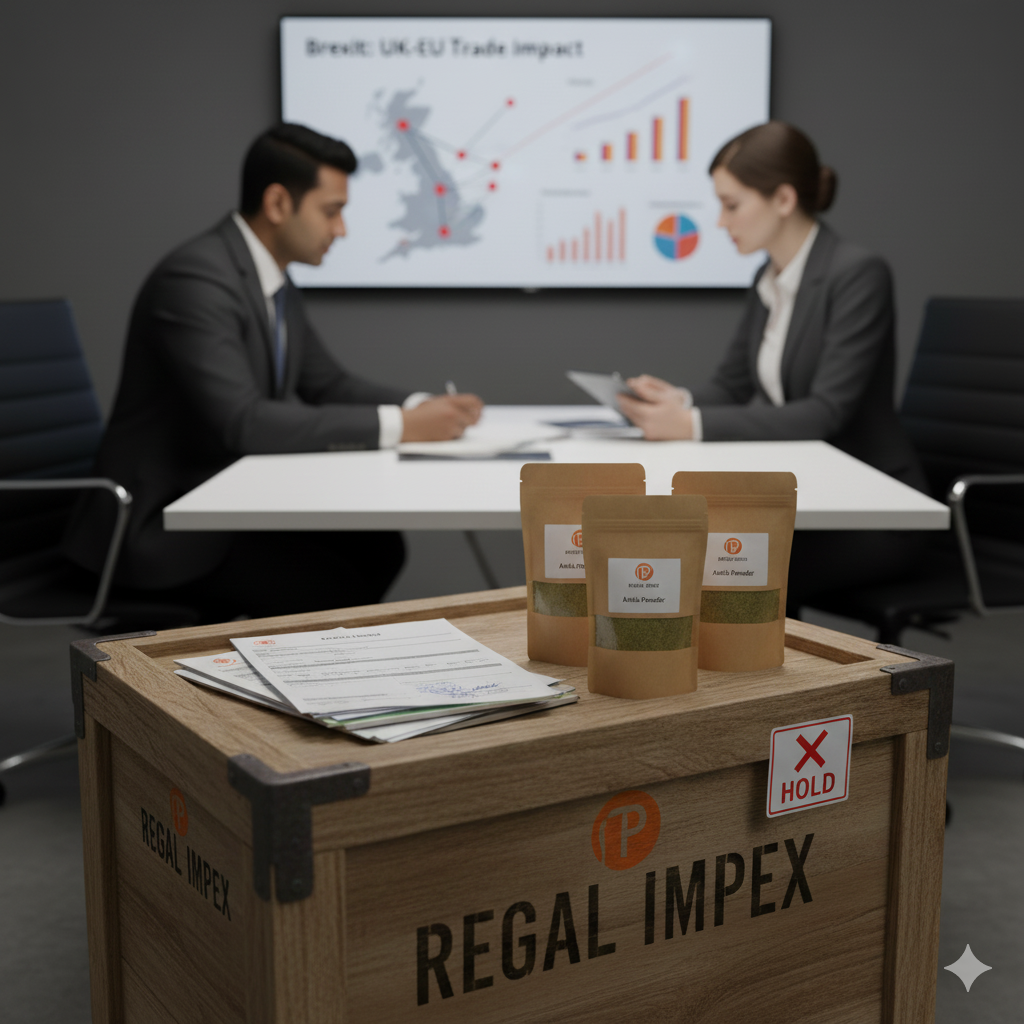Brexit: Impacts on Herbal Exports to the UK
The United Kingdom’s departure from the European Union (Brexit) has introduced significant regulatory and operational changes affecting herbal exports to the UK market. For Indian exporters and suppliers of herbal products such as Amla powder, navigating the post-Brexit trade environment requires updated compliance strategies to maintain seamless market access and competitive advantage.
Key Regulatory Changes Post-Brexit
Since January 2021, the UK no longer operates under the EU’s single market and customs union rules. This change has led to:
- New Customs Procedures: Herbal exports entering the UK face additional customs declarations, import VAT, and tariffs that did not apply within the EU framework. Exporters must submit detailed shipment documentation to UK Border Control.
- Separate UK Product Regulations: The UK has established its own herbal product standards, distinct from EU requirements. Compliance with the UK’s Medicines and Healthcare Products Regulatory Agency (MHRA) or the Food Standards Agency (FSA) may be required depending on the product’s classification.
- Labeling and Packaging: UK-specific labeling rules, including mandatory English-language nutrition and ingredient declarations, must be followed. Health claims and certifications accepted in the EU may have different requirements or approval processes in the UK.
- Sanitary and Phytosanitary (SPS) Checks: While the UK has implemented arrangements to ease SPS checks compared to initial post-Brexit phases, certain herbal and plant-based products may still be subject to inspections and certifications upon entry.
Challenges and Opportunities for Herbal Exporters
- Increased Compliance Costs: Exporters face higher administrative costs to meet UK import procedures and certification requirements, potentially impacting pricing and logistics strategies.
- Supply Chain Adaptations: Efficient supply chain management is critical to minimizing delays at borders and handling additional documentation.
- Market Diversification: Some exporters are exploring broader global markets beyond the UK and EU to mitigate Brexit-related risks.
- Enhanced Product Positioning: Compliance with stringent UK standards can provide competitive differentiation for high-quality, certified herbal products.
Recommendations for Exporters
- Stay Updated: Regularly monitor UK government announcements on herbal product regulations, customs requirements, and trade agreements.
- Documentation Accuracy: Ensure complete and accurate customs paperwork, including Certificates of Origin and phytosanitary certificates where applicable.
- Local Partnerships: Collaborate with UK-based agents or distributors familiar with local regulatory nuances.
- Invest in Certification: Obtain UK-specific certifications, such as MHRA approvals, to facilitate smoother market access.
- Proactive Communication: Stay transparent with UK buyers regarding shipping timelines and regulatory compliance.
Conclusion
Brexit has reshaped the landscape for herbal exports to the UK, presenting both challenges and opportunities. Proactive regulatory adherence, supply chain optimization, and strategic market positioning will enable exporters to successfully navigate this new environment and capitalize on the growing UK herbal market.
Stay ahead of Brexit impacts — Get the latest UK compliance updates and expert export support.



